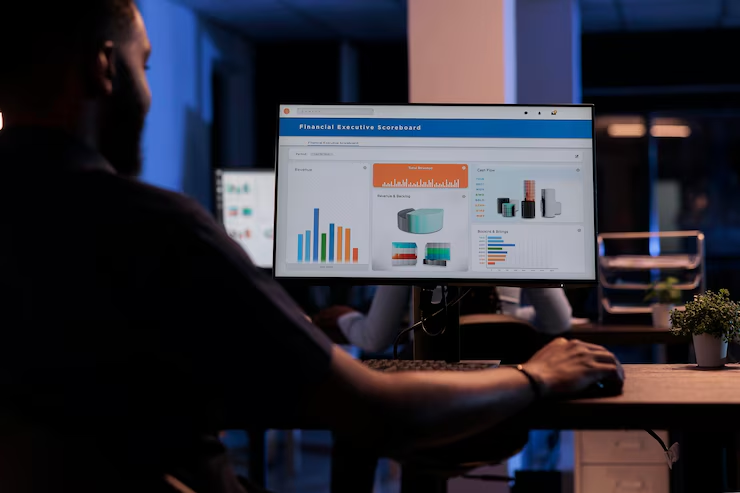Cybersecurity is no longer optional for B2B businesses in Sydney—it’s a necessity. With the rise of hacking attempts targeting sensitive business data, ensuring web security has become a top priority. Protecting your website from data breaches and maintaining compliance with global standards like GDPR and CCPA not only safeguards your reputation but also keeps your clients’ trust intact. In today’s digital-first world, B2B websites serve as the backbone of many businesses, enabling smooth communication, transactions, and collaboration. Let’s explore how you can fortify your web security and keep your business safe.
Understanding Cybersecurity for B2B Websites
Cybersecurity encompasses the tools and practices designed to protect digital systems, including websites, from unauthorized access and data theft. For Sydney’s B2B businesses, it’s essential to understand that cybersecurity isn’t just a technical concern—it’s a business-critical strategy. Whether you’re hosting client databases or processing online transactions, a secure website is your first line of defense.
Why Web Security is Crucial for Sydney Businesses
A cyberattack can cost a business more than just money; it can damage your reputation and lead to hefty penalties under legal frameworks like GDPR and CCPA. For Sydney businesses, compliance with these regulations isn’t optional, especially if you serve clients globally. Protecting data privacy is not only a legal obligation but also a competitive advantage in the digital landscape.
Top Cybersecurity Threats to B2B Websites
- Malware and Ransomware: These can corrupt your website’s data and disrupt business operations.
- Phishing Attacks: Cybercriminals trick employees into revealing sensitive information through fake emails or links.
- SQL Injections and DDoS Attacks: These methods exploit website vulnerabilities to steal data or crash servers.
Understanding these threats helps you build proactive defenses.

Best Practices for Securing Your B2B Websites
- Regular Updates: Keep all software and plugins up to date to patch security vulnerabilities.
- HTTPS and SSL Certificates: Encrypt data transmission to secure sensitive client information.
- Secure Login Practices: Use strong passwords and implement multi-factor authentication.
Proactive measures like these not only prevent attacks but also reinforce client trust.
Prioritizing Data Privacy: Compliance with GDPR and CCPA
The General Data Protection Regulation (GDPR) and California Consumer Privacy Act (CCPA) govern how businesses handle personal data. Non-compliance can result in severe penalties. Ensure your website:
- 1. Provides clear data usage policies
- 2. Offers opt-in consent for data collection
- 3. Allows users to request data deletion
These steps help protect your clients’ data and keep your business legally compliant.
The Role of Professional Website Development in Cybersecurity
A secure website begins with solid architecture. Opting for professional website development ensures your platform is built with security in mind. If you’re in Sydney, partnering with experts like Optominds guarantees a robust foundation for your online presence. Secure coding practices and regular vulnerability testing are essential for long-term protection.
Implementing Multi-Factor Authentication (MFA)
Multi-factor authentication (MFA) adds an extra layer of security by requiring users to verify their identity through multiple steps. For example, after entering a password, users might need to input a one-time code sent to their phone. This simple addition can drastically reduce the chances of unauthorized access.
Securing Payment Gateways on Your B2B Websites
Handling online transactions requires stringent security measures. Always choose PCI DSS-compliant payment gateways and use encryption protocols to safeguard financial data. Secure payment gateways not only protect sensitive information but also enhance customer confidence in your services.
Using Firewalls and Intrusion Detection Systems
Firewalls and intrusion detection systems act as virtual barriers, monitoring incoming traffic and blocking malicious attempts. Deploying these systems ensures your website remains protected from common cyber threats while maintaining optimal performance.

Educating Your Team on Cybersecurity
Even the most secure website can be compromised through human error. Regular employee training on cybersecurity best practices, such as identifying phishing attempts, can minimize risks. Your team is your first line of defense—keep them informed and vigilant.
Regularly Monitoring and Auditing B2B Websites Security
Regular monitoring and audits help identify vulnerabilities before they can be exploited. Tools like vulnerability scanners and penetration testing simulate attacks to assess your website’s defenses. A well-scheduled audit routine ensures consistent security.
Cloud Security for B2B Websites
Cloud solutions offer scalable and efficient data storage, but they must be secured. Encrypt your cloud-stored data and ensure compliance with relevant regulations. Partnering with reliable providers adds an extra layer of confidence.
Recovering from a Cybersecurity Incident
No system is entirely immune to breaches. Having an incident response plan ensures a swift and effective recovery. Identify the breach, isolate affected systems, and notify relevant stakeholders promptly. Learn from the incident to prevent future occurrences.
Conclusion
Cybersecurity is a continuous process that demands attention, investment, and expertise. By adopting best practices and working with professionals, you can protect your B2B website from cyber threats while ensuring data privacy compliance. For the best cybersecurity services or secure website development in Sydney, Optominds is your trusted partner. Contact us today to secure your digital assets!
FAQs
What is GDPR, and why does it matter for my Sydney business?
GDPR ensures data privacy for EU citizens. If you serve EU clients, compliance is mandatory to avoid hefty penalties.
How can I tell if my website is secure?
Look for HTTPS in your URL, use SSL certificates, and conduct regular vulnerability assessments.
What is PCI DSS compliance?
It’s a set of security standards for businesses handling payment information to ensure secure transactions.
Why should I use professional web development services?
Experts ensure your website is built with secure architecture and adheres to the latest cybersecurity standards.
What should I do after a cyberattack?
Isolate affected systems, notify stakeholders, investigate the breach, and strengthen your security measures moving forward.

